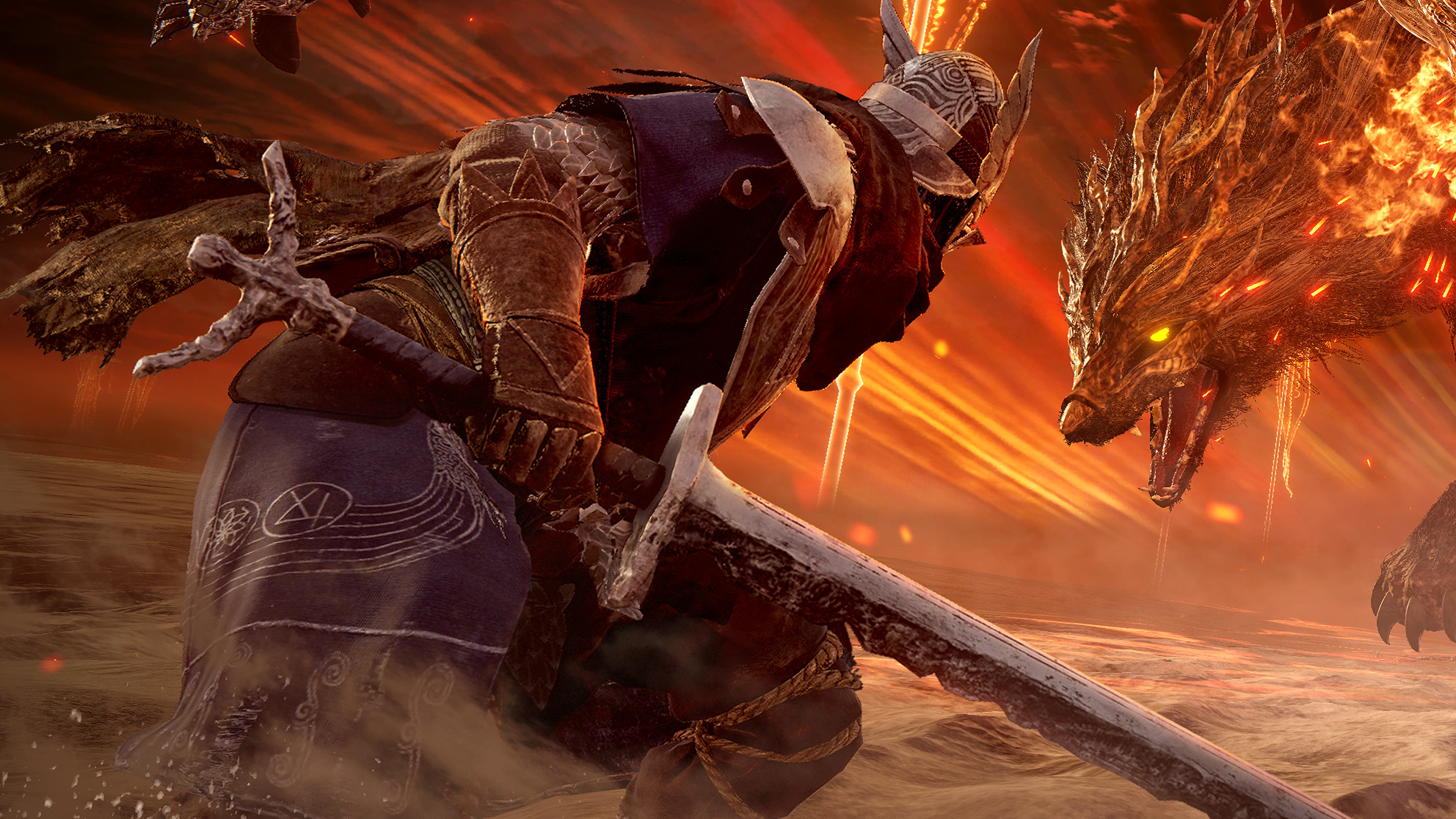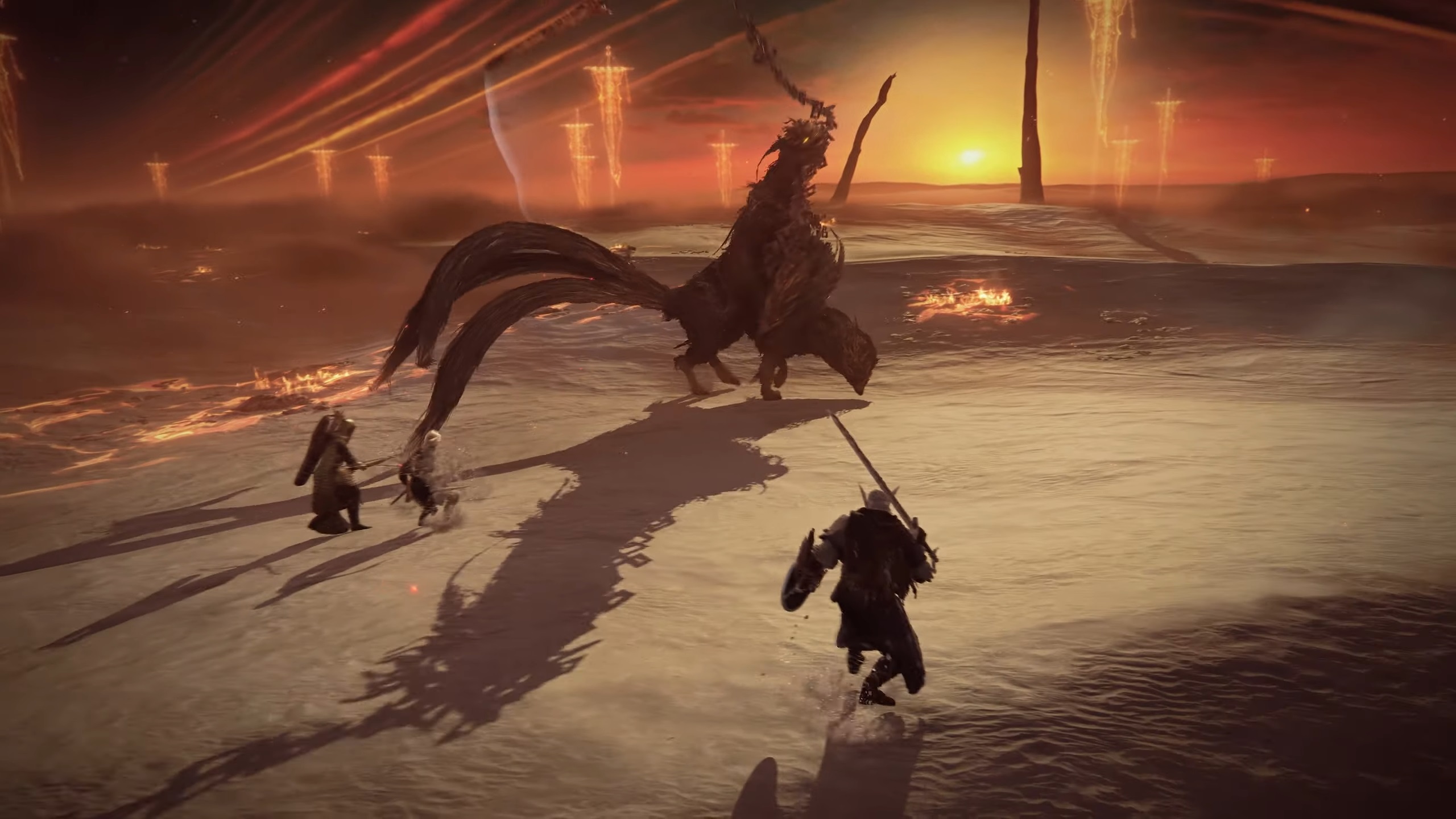Elden Ring Nightreign's story is told in part through playable memories, so FromSoftware really is delivering lore through whacking things
Relive that time your character hit a monster really hard!

Keep up to date with the most important stories and the best deals, as picked by the PC Gamer team.
You are now subscribed
Your newsletter sign-up was successful
Want to add more newsletters?

Every Friday
GamesRadar+
Your weekly update on everything you could ever want to know about the games you already love, games we know you're going to love in the near future, and tales from the communities that surround them.

Every Thursday
GTA 6 O'clock
Our special GTA 6 newsletter, with breaking news, insider info, and rumor analysis from the award-winning GTA 6 O'clock experts.

Every Friday
Knowledge
From the creators of Edge: A weekly videogame industry newsletter with analysis from expert writers, guidance from professionals, and insight into what's on the horizon.

Every Thursday
The Setup
Hardware nerds unite, sign up to our free tech newsletter for a weekly digest of the hottest new tech, the latest gadgets on the test bench, and much more.

Every Wednesday
Switch 2 Spotlight
Sign up to our new Switch 2 newsletter, where we bring you the latest talking points on Nintendo's new console each week, bring you up to date on the news, and recommend what games to play.

Every Saturday
The Watchlist
Subscribe for a weekly digest of the movie and TV news that matters, direct to your inbox. From first-look trailers, interviews, reviews and explainers, we've got you covered.

Once a month
SFX
Get sneak previews, exclusive competitions and details of special events each month!
If one thing is clear about Elden Ring Nightreign, it's that this is gonna upset a lot of folks' expectations for what a FromSoftware Souls game is. The co-op roguelike is built around short sessions, with each complete run lasting roughly 40 minutes, and that comes with a relentless pace: if you just enjoy bashing horrible monsters with big weapons, you're sorted, but those who love the subtleties of these worlds and the freeform exploration are mostly out of luck.
But that doesn't mean the baby's been thrown out with the bathwater. In a new interview with IGN director Junya Ishizaki reveals how the game plans to tell its story: and in a game where hitting things is the main mechanic, they're making memories about it.
"Nightreign shares essentially the base setting and the world of Elden Ring, but it's played out on a different stage so to speak," says Ishizaki. "So there's this concept called the Night Lord, which is a sort of abstract phenomenon or calamity that has befallen The Lands Between in this alternate timeline, and much like a real-life calamity, it's something that it's not done by design or intention: it's just something that has occurred naturally and it's befallen The Lands Between and it needed some sort of opposition.
"It needs something to oppose it, and that opposition comes in the form of the Nightfarers, who are these warriors who are entrusted with the fate of opposing and defeating the Nightlord and putting a stop to this terrible calamity."
Elden Ring: Nightreign gives players eight classes to choose from, but in each case these Nightfarers had a past before everything went wrong. Each character's history is explored through Remembrances, which are accessed via the Roundtable Hold (which acts as Nightreign's hub between individual runs).
There's a journal in the Roundtable Hold's library where you can view your current character's Remembrances: some of these are just story text, but some are playable memories from that character's past. These launch into a singleplayer Remembrance with hazy woo-woo borders around the action, and bespoke settings.

These memories also include NPCs, who'll give the character a personal objective, and the style of Remembrance will differ for each character. Some will ask you to fetch a particular item from a particular place during a 'normal' run, then return to the Remembrance and give it to the NPC and progress the characters' stories.
Keep up to date with the most important stories and the best deals, as picked by the PC Gamer team.
One example given of how the Remembrances differ between the characters is the Raider, whose memories build-out his past as some sort of arena fighter: so they're all one-on-one battles against various bosses.
Elden Ring Nightreign is out on Steam on May 30. PCG's Morgan Park recently played three hours of the game, and had a lot of fun, even if it's not quite clear whether the game can keep things interesting over a longer period: "I hope I'm not dealing fatal psychic damage when I say that, structurally, Elden Ring Nightreign has more in common with Fortnite than Elden Ring."

Rich is a games journalist with 15 years' experience, beginning his career on Edge magazine before working for a wide range of outlets, including Ars Technica, Eurogamer, GamesRadar+, Gamespot, the Guardian, IGN, the New Statesman, Polygon, and Vice. He was the editor of Kotaku UK, the UK arm of Kotaku, for three years before joining PC Gamer. He is the author of a Brief History of Video Games, a full history of the medium, which the Midwest Book Review described as "[a] must-read for serious minded game historians and curious video game connoisseurs alike."
You must confirm your public display name before commenting
Please logout and then login again, you will then be prompted to enter your display name.

